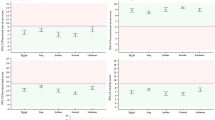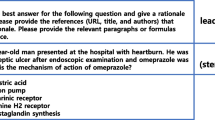Abstract
ChatGPT represents an advanced conversational artificial intelligence (AI), providing a powerful tool for generating human-like responses that could change pharmacy prospects. This protocol aims to describe the development, validation, and utilization of a tool to assess the knowledge, attitude, and practice towards ChatGPT (KAP-C) in pharmacy practice and education. The development and validation process of the KAP-C tool will include a comprehensive literature search to identify relevant constructs, content validation by a panel of experts for items relevancy using content validity index (CVI) and face validation by sample participants for items clarity using face validity index (FVI), readability and difficulty index using the Flesch-Kincaid Readability Test, Gunning Fog Index, or Simple Measure of Gobbledygook (SMOG), assessment of reliability using internal consistency (Cronbach’s alpha), and exploratory factor analysis (EFA) to determine the underlying factor structures (eigenvalues, scree plot analysis, factor loadings, and varimax). The second phase will utilize the validated KAP-C tool to conduct KAP surveys among pharmacists and pharmacy students in selected low- and middle-income countries (LMICs) (Nigeria, Pakistan, and Yemen). The final data will be analyzed descriptively using frequencies, percentages, mean (standard deviation) or median (interquartile range), and inferential statistics like Chi-square or regression analyses using IBM SPSS version 28. A p<0.05 will be considered statistically significant. ChatGPT holds the potential to revolutionize pharmacy practice and education. This study will highlight the psychometric properties of the KAP-C tool that assesses the knowledge, attitude, and practice towards ChatGPT in pharmacy practice and education. The findings will contribute to the potential ethical integration of ChatGPT into pharmacy practice and education in LMICs, serve as a reference to other economies, and provide valuable evidence for leveraging AI advancements in pharmacy.
Similar content being viewed by others

Data Availability
All data generated or analyzed during this study are included in this published article [and its supplementary information files].
References
Haleem A, Javaid M, Khan IH. Current status and applications of artificial intelligence (AI) in medical field: an overview. Curr Med Res Pract. 2019;9(6):231–7. https://doi.org/10.1016/j.cmrp.2019.11.005.
Awad SO, Mohamed Y, Shaheen R. Applications of artificial intelligence in education. Al-Azkiyaa-Jurnal Antarabangsa Bahasa dan Pendidikan. 2022;1(1):71–81.
Arif TB, Munaf U, Ul-Haque I. The future of medical education and research: is ChatGPT a blessing or blight in disguise? Taylor & Francis; 2023. p. 2181052.
Baines D, Nørgaard LS, Rossing C. The Fourth Industrial Revolution: will it change pharmacy practice? Res Soc Adm Pharm. 2020;16(9):1279–81.
Raza MA, Aziz S, Noreen M, et al. Artificial intelligence (AI) in pharmacy: an overview of innovations. Innov Pharm. 2022;13(2). https://doi.org/10.24926/iip.v13i2.4839.
Das S, Dey R, Nayak AK. Artificial intelligence in pharmacy. Indian J Pharm Educ Res. 2021;55(2):304–18. https://doi.org/10.5530/ijper.55.2.68.
Sallam M, Salim N, Barakat M, Al-Tammemi A. ChatGPT applications in medical, dental, pharmacy, and public health education: a descriptive study highlighting the advantages and limitations. Narra J. 2023;3(1):e103–3.
Sallam M. ChatGPT utility in health care education, research, and practice: systematic review on the promising perspectives and valid concerns. MDPI. 2023:887.
Kung TH, Cheatham M, Medenilla A, et al. Performance of ChatGPT on USMLE: potential for AI-assisted medical education using large language models. PLOS Digit Health. 2023;2(2):e0000198. https://doi.org/10.1371/journal.pdig.0000198.
Korinek A, Stiglitz JE. Artificial intelligence, globalization, and strategies for economic development. 2021;28453. https://doi.org/10.1371/10.3386/w28453.
Tey NP, Lai SL. Correlates of and barriers to the utilization of health services for delivery in South Asia and Sub-Saharan Africa. Sci World J. 2013;2013:423403. https://doi.org/10.1155/2013/423403.
Kumar N, Ahmed F, Raza MS, et al. Monkeypox cross-sectional survey of knowledge, attitudes, practices, and willingness to vaccinate among university students in Pakistan. Vaccines. 2022;11(1):97.
Mustapha M, Lawal BK, Sha’aban A, et al. Factors associated with acceptance of COVID-19 vaccine among university health sciences students in Northwest Nigeria. Plos One. 2021;16(11):e0260672. https://doi.org/10.1371/journal.pone.0260672.
Bala AA, Jatau AI, Yunusa I, et al. Development and validation of antisnake venom knowledge assessment tool (AKAT) for healthcare practitioners. Toxicon X. 2020;8:100064. https://doi.org/10.1016/j.toxcx.2020.100064.
Bala AA, Jatau AI, Yunusa I, et al. Knowledge assessment of snake antivenom among healthcare practitioners involving educational intervention in northern Nigeria: a study protocol. Ther Adv Drug Saf. 2020;11(2):042098620935721. https://doi.org/10.1177/2042098620935721.
Tsang S, Royse CF, Terkawi AS. Guidelines for develo**, translating, and validating a questionnaire in perioperative and pain medicine. Saudi J Anaesthesia. 2017;11(Suppl 1):S80.
Sousa VD, Rojjanasrirat W. Translation, adaptation and validation of instruments or scales for use in cross-cultural health care research: a clear and user-friendly guideline. J Eval Clin Pract. 2011;17(2):268–74.
Polit DF, Beck CT, Owen SV. Is the CVI an acceptable indicator of content validity? Appraisal and recommendations. Res Nurs Health. 2007;30(4):459–67.
Yusoff MSB. ABC of content validation and content validity index calculation. Educ Med J. 2019;11(2):49–54.
Nevo B. Face validity revisited. J Educ Measure. 1985;22(4):287–93. https://doi.org/10.1111/j.1745-3984.1985.tb01065.x.
Thomas SD, Hathaway DK, Arheart KL. Face validity. West J Nurs Res. 1992;14(1):109–12. https://doi.org/10.1177/019394599201400111.
Yusoff MSB. ABC of response process validation and face validity index calculation. Educ Med J. 2019;11(10.21315)
Contreras A, Garcia-Alonso R, Echenique M, Daye-Contreras F. The SOL formulas for converting SMOG readability scores between health education materials written in Spanish, English, and French. J Health Commun. 1999;4(1):21–9. https://doi.org/10.1080/108107399127066.
Feldt LS. The relationship between the distribution of item difficulties and test reliability. Appl Measure Educ. 1993;6(1):37–48.
Rattray J, Jones MC. Essential elements of questionnaire design and development. J Clin Nurs. 2007;16(2):234–43. https://doi.org/10.1111/j.1365-2702.2006.01573.x.
Guad RM, Mangantig E, Low WY, et al. Development and validation of a structured survey questionnaire on knowledge, attitude, preventive practice, and treatment-seeking behaviour regarding dengue among the resident population of Sabah, Malaysia: an exploratory factor analysis. BMC Infect Dis. 2021;21(1):893. https://doi.org/10.1186/s12879-021-06606-6.
Soleymanian A, Niknami S, Hajizadeh E, Shojaeizadeh D, Montazeri A. Development and validation of a health belief model based instrument for measuring factors influencing exercise behaviors to prevent osteoporosis in pre-menopausal women (HOPE). BMC Musculoskelet Disord. 2014;15(1):61. https://doi.org/10.1186/1471-2474-15-61.
von Elm E, Altman DG, Egger M, et al. The Strengthening the Reporting of Observational Studies in Epidemiology (STROBE) statement: guidelines for reporting observational studies. Int J Surg. 2014;12(12):1495–9. https://doi.org/10.1016/j.ijsu.2014.07.013.
Eysenbach G. Correction: improving the quality of web surveys: the checklist for reporting results of internet e-surveys (CHERRIES). J Med Internet Res. 2012;14(1):e2042.
Yasar N. The relationship between energy consumption and economic growth: evidence from different income country groups. Int J Energy Econ Policy. 2017;7(2):86–97.
Abubakar I, Dalglish SL, Angell B, et al. The Lancet Nigeria Commission: investing in health and the future of the nation. Lancet. 2022;399(10330):1155–200. https://doi.org/10.1016/S0140-6736(21)02488-0.
Nonyel N, Ogbonna BO. Capacity-building and collaborative curriculum development: a transition from BPharm to PharmD degree at Nnamdi Azikiwe University in Nigeria. Pharm Educ. 2022;22(4):131–42.
Ekpenyong A, Udoh A, Kpokiri E, Bates I. An analysis of pharmacy workforce capacity in Nigeria. J Pharm Policy Pract. 2018;11(1):9. https://doi.org/10.1186/s40545-018-0147-9.
Daniel-Ebune E, Jatau AI, Burji SL, Mohammed M. Notes from the field: availability of satellite pharmacies and pharmacy service units in Nigerian hospitals—implications for pharmaceutical care. Eval Health Prof. 2021;44(2):177–9. https://doi.org/10.1177/0163278720934174.
Obansa S, Orimisan A. Health care financing in Nigeria: prospects and challenges. Mediterr J Soc Sci. 2013;4(1):221–36.
Oleribe OO, Momoh J, Uzochukwu BS, et al. Identifying key challenges facing healthcare systems in Africa and potential solutions. Int J Gen Med. 2019;12:395–403. https://doi.org/10.2147/IJGM.S223882.
Jamal A. Generation Z in Pakistan: individualistic and collectivist in orientation. The new generation Z in asia: Dynamics, differences, digitalisation. Emerald Publishing Limited; 2020. p. 105–17.
Madiha M, Yang C-q. Curriculum and pharmacy practice experience offered for Pharm-D in Pakistan: needs and possibilities. International Current. Pharm J. 2014;3(8):313–7.
Hussain A, Jamshed S. Pharmacy practice in Pakistan. Pharm Practice in Develo** Countries Elsevier. 2016:97–115.
Atif M, Ahmad M, Saleem Q, Curley L, Qamar-uz-Zaman M, Babar ZUD. Pharmaceutical policy in Pakistan. Pharm Policy Countries Dev Healthcare Syst. 2017:25–44.
Atif M, Ahmad M, Saleem Q, Curley L, Qamar-uz-Zaman M, Babar Z-U-D. Pharmaceutical policy in Pakistan. In: Babar Z-U-D, editor. Pharmaceutical Policy in Countries with Develo** Healthcare Systems. Springer International Publishing; 2017. p. 25–44. chap Chapter 3.
Gelvin JL. The new Middle East: what everyone needs to know. Oxford University Press; 2018.
Alles L. Missiles and food: Yemen’s man-made food security crisis. Oxfam; 2017.
Garber K, Fox C, Abdalla M, et al. Estimating access to health care in Yemen, a complex humanitarian emergency setting: a descriptive applied geospatial analysis. Lancet Glob Health. 2020;8(11):e1435–43. https://doi.org/10.1016/S2214-109X(20)30359-4.
Al-Worafi YM. Pharmacy practice and its challenges in Yemen. Australas Med J. 2014;7(1):17–23. https://doi.org/10.4066/AMJ.2014.1890.
Al-Worafi YMA. Pharmacy practice in Yemen. Pharmacy practice in develo** countries. Elsevier. 2016:267–87.
Raosoft I. Sample size calculator. 2004. Available from: www.raosoft.com/samplesize. Accessed 01/03/2023.
Saka SA, Adisa R, Isah A, Biambo AA. Pharmacy graduates’ perceptions of competency, integration, and social accountability in the undergraduate curriculum of pharmacy schools in Nigeria. Curr Pharm Teach Learn. 2021;13(11):1414–23.
Naqvi AA, Zehra F, Naqvi SBS, et al. Migration trends of pharmacy students of Pakistan: a study investigating the factors behind brain drain of pharmacy professionals from Pakistan. Indian J Pharm Educ Res. 2017;51(2):192–206. https://doi.org/10.5530/ijper.51.2.25.
Al-Ashwal FY, Sulaiman SAS, Sheikh Ghadzi SM, Kubas MA, Halboup A. Physicians and pharmacists’ clinical knowledge of statin therapy and monitoring parameters, and the barriers to guideline implementation in clinical practice. PLoS One. 2023;18(1):e0280432. https://doi.org/10.1371/journal.pone.0280432.
Al-Worafi YM. Pharmacy education in Yemen. Am J Pharm Educ. 2013;77(3):65. https://doi.org/10.5688/ajpe77365.
Haleem A, Javaid M, Singh RP. An era of ChatGPT as a significant futuristic support tool: a study on features, abilities, and challenges. Bench Council Trans Benchmarks Stand Evaluat. 2022;2(4):100089.
Yusoff MSB, Arifin WN, Hadie SNH. ABC of questionnaire development and validation for survey research. Educ Med J. 2021;13(1)
Sallam M. ChatGPT utility in healthcare education, research, and practice: systematic review on the promising perspectives and valid concerns. MDPI. 2023:887.
ElMassah S, Mohieldin M. Digital transformation and localizing the sustainable development goals (SDGs). Ecol Econ. 2020;169:106490.
Tinmaz H, Fanea-Ivanovici M, Baber H. A snapshot of digital literacy. Library Hi Tech News. 2023;40(1):20–3.
Shin D, Chotiyaputta V, Zaid B. The effects of cultural dimensions on algorithmic news: how do cultural value orientations affect how people perceive algorithms? Comp Hum Behav. 2022;126:107007.
Acknowledgements
The authors would like to thank the experts who provided feedback for improvement to the study tool and the participants for volunteering to complete the survey.
Author information
Authors and Affiliations
Contributions
Conceptualization: [MM, NK, MZ, FYA]; methodology: [MM, NK, MZ, FYA, AAB]; formal analysis and investigation: [MM, NK, FYA, AAB, SM]; writing — original draft preparation: [MM, NK, MZ, FYA, AAB, BKL, ASW, AH, SM, RA, AH, AS]; writing — review and editing: [MM, NK, MZ, FYA, AAB, BKL, ASW, AH, SM, RA, AH, AS]; resources: [MM, MZ, NK, ASW, AH, SM, RA, AH, AS]; supervision: [BKL, AS]; all authors approved the final draft for publication.
Corresponding author
Ethics declarations
Ethics Approval and Consent to Participate
The present study is a methodological protocol and does not involve human participants. Therefore, it does not require ethical approval and consent. However, the approvals for the main study are currently under processing with the respective institutional review boards in Nigeria, Pakistan, and Yemen, as detailed in the manuscript.
Consent for Publication
All authors agreed to the publication of the manuscript as presented.
Competing Interests
The authors declare no competing interests.
Additional information
Publisher’s Note
Springer Nature remains neutral with regard to jurisdictional claims in published maps and institutional affiliations.
Rights and permissions
Springer Nature or its licensor (e.g. a society or other partner) holds exclusive rights to this article under a publishing agreement with the author(s) or other rightsholder(s); author self-archiving of the accepted manuscript version of this article is solely governed by the terms of such publishing agreement and applicable law.
About this article
Cite this article
Mohammed, M., Kumar, N., Zawiah, M. et al. Psychometric Properties and Assessment of Knowledge, Attitude, and Practice Towards ChatGPT in Pharmacy Practice and Education: a Study Protocol. J. Racial and Ethnic Health Disparities (2023). https://doi.org/10.1007/s40615-023-01696-1
Received:
Revised:
Accepted:
Published:
DOI: https://doi.org/10.1007/s40615-023-01696-1



